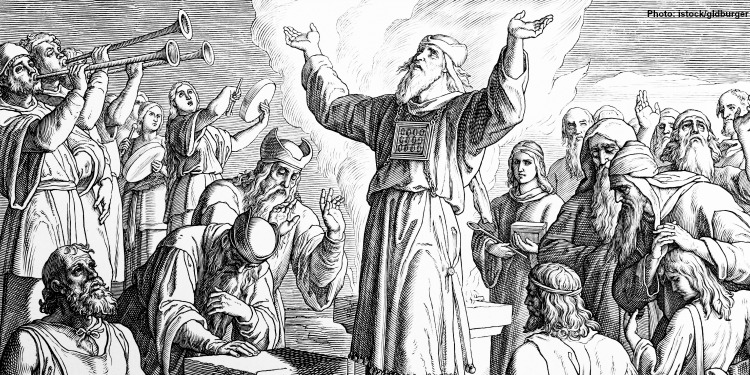Then and Now
The Fellowship | February 2, 2020

“Slaughter it, take some of its blood and put it on the lobes of the right ears of Aaron and his sons, on the thumbs of their right hands, and on the big toes of their right feet. Then splash blood against the sides of the altar.” — Exodus 29:20
As we remember the anniversary of Fellowship Founder Rabbi Yechiel Eckstein’s passing this month, we offer you a selection of his devotional thoughts on leaving a legacy of faith. Learn how you can honor Rabbi Eckstein’s lifework and legacy through our Wings of Eagles ministry.
Our passage today explains the inauguration of the kohanim, or priests. During the ceremony, Aaron and his sons were commanded to sacrifice a ram and place its blood on their ear, thumb, and toe. What is the meaning of this unusual ritual?
Jewish tradition explains that the ear symbolizes everything that we have heard in the past. The thumb represents everything we are doing in the present. The toe represents where we are going in the future. As the priests prepared themselves for service, they had to remember three things: the past, present, and future. Only in that context would they be able to fully serve God.
This was true of the kohanim then, and it is just as true when we serve God today. In order to serve God fully we must be deeply connected to our past, cognizant of the future, and most importantly, rooted in the present. Only through that lens can our service be complete.
Remembering our past is important because it gives context to our present actions. We understand that we are another link in a long chain going all the way back to Abraham. We can learn from the mistakes of our ancestors and be inspired by their successes. And we can appreciate the privilege that we have in continuing their legacy. How much more meaningful is our service when it’s not just about us, but includes generations before us!
Considering the future is critical as well. What might we do differently if we considered the consequences of our actions! On one hand, we might be extra careful to avoid sin when we consider how it may harm others, including ourselves, further down the line. On the other hand, we might be more enthusiastic about doing good deeds when we appreciate the value they will have long after we do them. When serving God, we need to have a long-term view. The full impact of our actions is not felt immediately, but has lasting repercussions for eternity!
Finally, when we serve God, we must be fully rooted in the present. Indeed, the most important time is now. The most important people are the ones in front of you. And the most important thing to do is the task before you. We believe in a God that is involved in every detail in our lives. So whatever He has placed in our lives now is there so that we can serve Him best.
Take a moment to consider where you have come from, where you are going, and where you are right now. With that perspective, ask yourself: How can I best serve God today?
